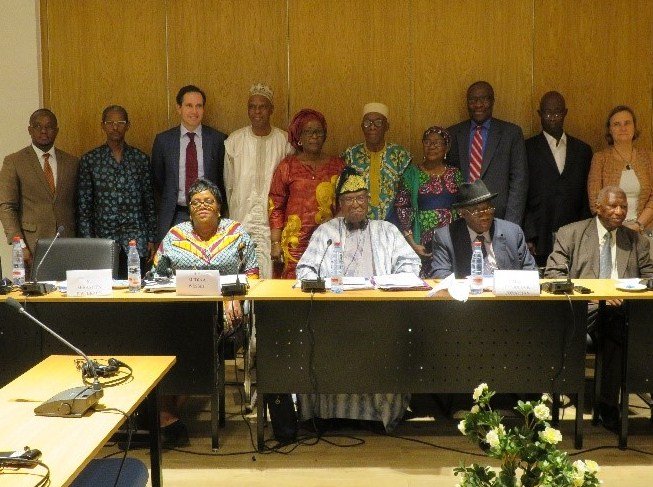The National Democratic Institute (NDI), a non-governmental organization that promotes democracy and good governance, has released a report on the pre-election situation in Georgia, ahead of the parliamentary elections scheduled for October 26, 2024. The report, based on the findings of a delegation that visited the country from February 19 to 25, 2024, expresses concern over the recent amendments to the Electoral Code, which do not comply with the recommendations of the OSCE/ODIHR and the Venice Commission, and may further erode public confidence in the Central Election Commission (CEC).
CEC composition and election process under scrutiny
According to the report, the most noteworthy change is the abolition of the position of the CEC deputy chairperson, which was held by a CEC member appointed from the opposition parties. The report states that this, along with the high threshold set for parliamentary elections, reduces the possibilities of reaching a political consensus in the decision-making process and increasing public confidence in the CEC’s impartiality.
The report also notes that the composition of the CEC and the process of electing its members underwent significant changes, which were not in line with the agreement of April 19, 2023, that aimed to ensure consensus in a polarized political environment. The agreement recommended that the CEC chairperson and professional members be elected for a five-year term, with the support of two-thirds of the parliament. However, due to insufficient support, the current CEC chairperson was elected in August 2021 for a six-month term, and since then, no nominated candidate has received the required two-thirds of the votes. As a result, based on the Election Code, Kalandarishvili performs the duties of the chairperson until a new one is elected.

With the amendments made to the Election Code, the authority to nominate CEC members was transferred from the President to the Chairperson of the Parliament, and the number of votes required for election was changed several times. Changes in recent years have reduced the required quorum from two-thirds of the full membership of the Parliament to a simple majority, and finally, as of February 2024, the support of three-fifths of the full membership of the Parliament is required to elect the CEC chairperson and professional members for a five-year term.
Other challenges and opportunities for credible elections
The report highlights other challenges and opportunities for credible elections in Georgia, such as:
- The need to address the polarization, verbal attacks on civil society (including citizen observers), fears about the possible misuse of administrative resources for political advantage, and concerns around the implementation of new electoral technologies.
- The positive signs of broad public support for democracy, human rights and the rule of law; sustained positive public impression of the police; as well as a significant and maintained improvement in public perceptions of petty corruption; efforts to improve transparency by resuming the publication of government decrees; and innovations to improve the efficiency of election day processes.
- The importance of international and citizen observation in promoting credible elections and demonstrating the importance of global democratic norms.
- The opportunity for the Georgian Government, and all political stakeholders, to demonstrate their commitment to the principles of inclusive, transparent and accountable elections as well as their adherence to democratic values, as these will be the country’s first elections since gaining European candidacy status.
The report concludes with a set of practical recommendations for the Georgian authorities, political parties, civil society, media, and the international community, to address the identified challenges and opportunities, and to enhance the credibility and integrity of the electoral process.
